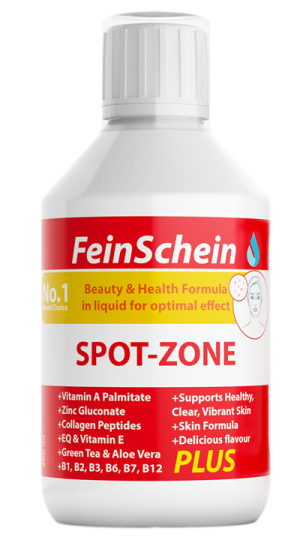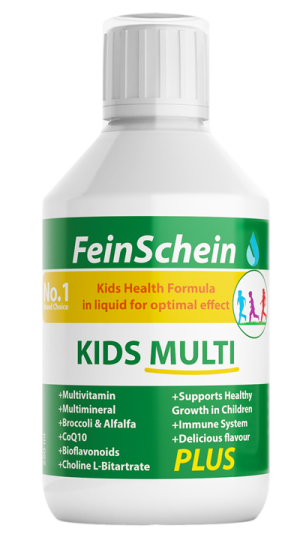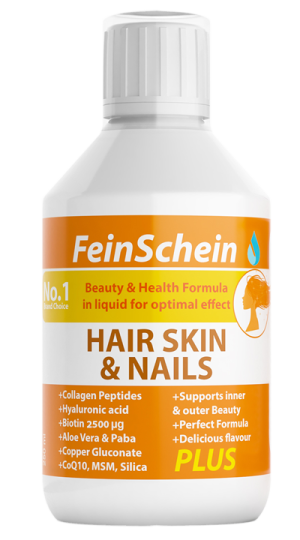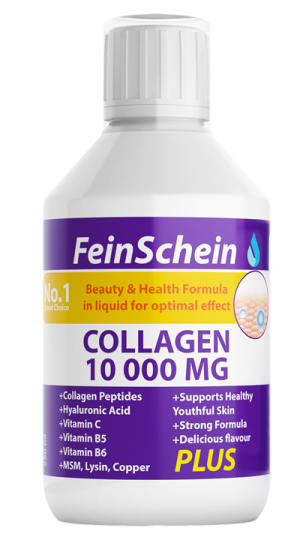How To Use
Dose 15 ml daily to be taken directly or added to 20 ml water or juice
Flavour: Fruits
Collagen
+Collagen is the key structural component of cartilage tissue and maintaining sufficient levels is essential to maintain healthy and flexible joints. The efficacy of Collagen peptides and the mechanism behind its ability to support and improve joint function and joint comfort is backed by scientific studies.
+Connective tissues and joints need collagen for proper functioning; reduced levels might cause aches in your joints and muscles.
+Reduced collagen causes weakening of cartilage in the joints.
Hyaluronic acid
+Benefits soft tissue function, such as joint support, and combating osteoarthritis.
+Research has shown that hyaluronic acid can be orally absorbed –the results of the study which examined the absorption, excretion and distribution of radiolabeled HA after a single oral administration, demonstrated that it is absorbed and distributed to organs and joints.
Research has shown that MSM is highly effective in improving joint flexibility.
Additionally, it helps to produce flexible skin and muscle tissue. This leads to an increase in overall flexibility due to a restoration of the “juiciness” in the tissues.
Chondroitin
Claims: Reduces pain and inflammation, improves joint function and slows progression of osteoarthritis (OA).
What we know: Believed to enhance the shock-absorbing properties of collagen and block enzymes that break down cartilage. Helps cartilage retain water and may reverse cartilage loss when used with glucosamine.
Studies: The largest study to date, the 2006 Glucosamine/chondroitin Arthritis Intervention Trial (GAIT) looked at 1,600 people with knee OA. The first phase found that a small subset of patients with moderate-to-severe arthritis experienced significant pain relief from combined glucosamine and chondroitin. The 2008 phase found that glucosamine and chondroitin, together or alone, did not slow joint damage. And in the two-year-long 2010 phase, glucosamine and chondroitin were found as effective for knee OA as celecoxib ( Celebrex ).
But a 2010 meta-analysis of 10 trials involving more than 3,000 patients published in BMJ found no benefit from chondroitin, glucosamine or both.
A separate 2011 study showed a significant improvement in pain and function in patients with hand OA using chondroitin alone. Benefits of chondroitin and glucosamine remain controversial, but the supplements appear extremely safe.
The glucosamine in your body helps keep up the health of your cartilage -- the rubbery tissue that cushions bones at your joints. But as you get older, your levels of this compound begin to drop, which leads to the gradual breakdown of the joint.
Osteoarthritis . Most research on glucosamine sulfate has measured its effectiveness on osteoarthritis of the knee. However, there is some evidence that it might also help osteoarthritis of the hip or spine.
Some research suggests that glucosamine reduces pain of osteoarthritis in the knee about as well as the over-the-counter pain reliever acetaminophen (Tylenol). It also seems to reduce pain about as much as the nonsteroidal anti-inflammatory drugs (NSAIDs) ibuprofen (Motrin, Advil) and piroxicam (Feldene). However, there is a difference between glucosamine sulfate and these drugs in the time it takes to reduce pain. The NSAIDs, such as Motrin, Advil, and Feldene, relieve symptoms and reduce pain usually within about 2 weeks, but glucosamine sulfate takes about 4-8 weeks.
Glucosamine sulfate does not seem to decrease pain in everyone who takes it. Some people get no benefit. Some research shows that glucosamine sulfate might not work very well for people with more severe, long-standing osteoarthritis, or for people who are older or heavier.
In addition to relieving pain and improving joint function, glucosamine sulfate might also slow the breakdown of joints in people with osteoarthritis who take it long-term. Some researchers hope that glucosamine sulfate might keep osteoarthritis from getting worse as quickly as it otherwise might. There is some evidence that people who take glucosamine sulfate might be less likely to need total knee replacement surgery.
TURMERIC:
Claims: Reduces pain, inflammation and stiffness related to rheumatoid arthritis (RA) and osteoarthritis (OA); treats bursitis. Known as a cleansing agent, turmeric often is used as a digestive aid in India. What we know: Traditionally used in Chinese and Indian Ayurvedic medicine to treat arthritis turmeric/curcumin blocks inflammatory cytokines and enzymes, including cyclooxygenase-2 (COX-2), the target of celecoxib ( Celebrex ). Studies: Several recent studies show that turmeric/curcumin has anti-inflammatory properties and modifies immune system responses. A 2006 study showed turmeric was more effective at preventing joint inflammation than reducing joint inflammation. A 2010 clinical trial found that a turmeric supplement called Meriva (standardized to 75 percent curcumin combined with phosphatidylcholine) provided long-term improvement in pain and function in 100 patients with knee OA.
Green Tea
Anyone with arthritis pain knows that it can affect daily life, making small tasks like writing and walking unbearable, but a recent study found that green tea can soothe arthritic joints.
Researchers at the University of Michigan discovered that green tea contains a compound called epigallocatechin-3-gallate (EGCG for short). EGCG inhibits the production of the molecules that contribute to inflammation and joint damage in people with rheumatoid arthritis. The EGCG in green tea suppresses inflammation in the connective tissue of arthritis sufferers too.
Ginseng
New research has discovered that several ginsenosides, biologically active compounds found in the herb ginseng, have strong anti-inflammatory effects. The research demonstrates that ginsenosides can reduce inflammation in septic shock, rheumatoid arthritis, and dermatitis including psoriasis.
Magnesium strengthens bones; maintains nerve and muscle function; regulates heart
rhythm and blood sugar levels; and helps maintain joint cartilage.
Vitamin D, a crucial nutrient for strong bones, is more likely to be lacking in people who take oral corticosteroids . A study by researchers at Albert Einstein College of Medicine of Yeshiva University, in New York City, found that those on steroids have a vitamin D deficiency twice as often as people who don’t take one of these medications.
Because those with arthritis are often prescribed oral steroids, it is very important to ensure that your vitamin D levels are regularly checked if you’re on these drugs.
Vitamin B12 reduces homocysteine, an amino acid found at high levels in people with rheumatoid arthritis (RA). Even moderately elevated homocysteine is associated with an increased risk of fractures in older adults.
Vitamin C
Anti-inflammatory (which joints are in cases of arthritis)
Supports natural absorption of collagen







